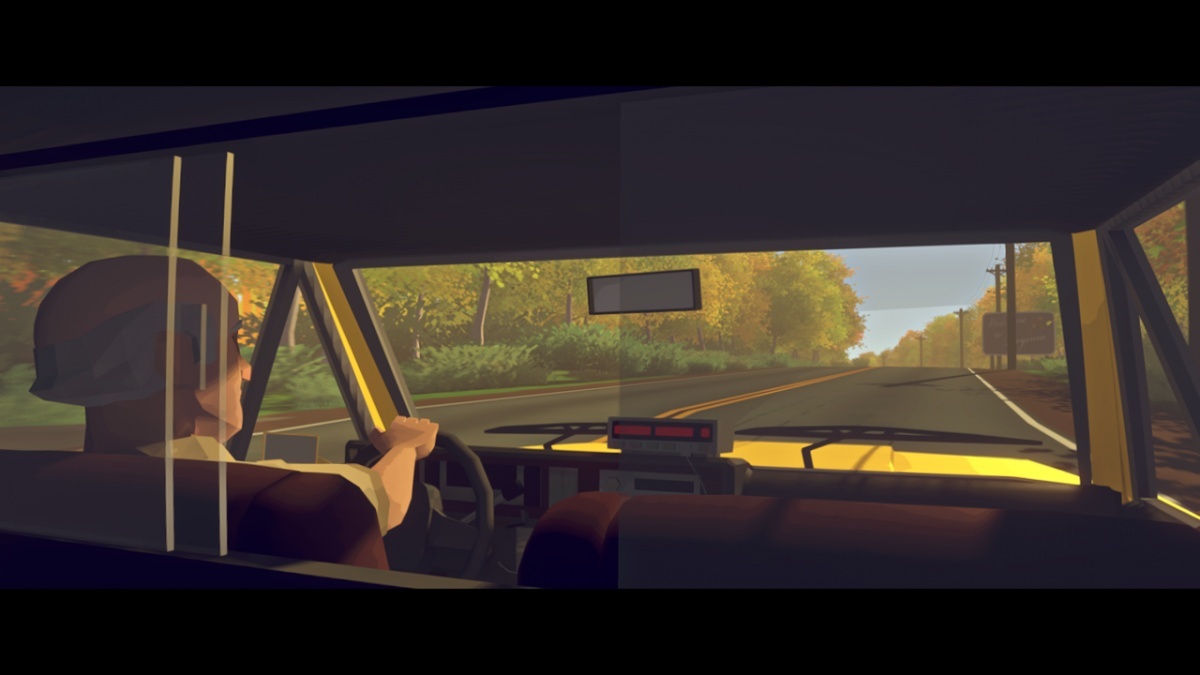Virginia (Xbox One) Review
By Nikola Suprak  09.02.2017
09.02.2017

There is an entire subgenre of games that are often derisively referred to as "walking simulators." The games often involve little to no action, and gameplay is instead focused on exploring locations and unveiling the story through interacting with objects and characters. There is nothing inherently wrong with the genre, particularly if the player understands what sort of game they will be playing before starting. There are plenty of very enjoyable games in this genre that tell interesting or meaningful stories in a way that might not be easy if a different approach was used. Unfortunately, Virginia (PS4 review; PC review) is not one of those games. It sacrifices gameplay to focus on story, then fails to tell a story worth listening to.
Virginia tells the story of two FBI agents on the case of the disappearance of a boy from a small town in Virginia. As a basis for a story, this may not sound like the most original premise as I think this could describe like five different movies released each year. Still, it does a good job drawing interest at first and a lot is done presentation ways to help this stand out. There is no dialogue the entire game, and even when interacting with various characters, the story is told by reading little scraps of paper here or there or simply by watching the characters mime out a scene. And, for a while, the plot actually seems fairly interesting. There are twists and turns, to the point where figuring out exactly what went on is a big motivator to keep on playing the game.

Then the last third or so of the game kicks in, the game drinks a bunch of paint, and the entire story goes off the rails. Even during the early portions of the game the plot isn't entirely cohesive, partially due to the fact that no one is talking. Even someone fully paying attention and trying to keep track of everything isn't going to know fully what is happening. It turns out dialogue is kind of an important part of the story, and by removing it entirely it feels like watching a movie where someone has muted the sound. Sure, it's possible to kind of tell what is going on, but why not just unmute things so the audience can actually understand what's going on. There are several parts where things happen that are vague at best, and it is hard to have a grasp as to what is going on with everyone just pantomiming actions. It certainly makes the game more interesting artistically, but when the entire focus is the story it makes very little sense to cut out the words from the game entirely.

When the final act hits, the game throws off the last remaining semblance of cohesiveness and runs around screaming and making airplane noises. Another important aspect of the story is the fact that the main character is investigating their partner for possible misconduct while their actual investigation is being conducted, leading to a climactic scene where she is confronted for the decisions she's made. Then she takes some drugs and goes on a drug-fuelled dream where she floats around and kind of sees some things that may or may not be connected to the case in some way.
That isn't a joke. Once the game seems to be at its most interesting, it goes on this bizarre aside, leaving the player guessing at what is real and what isn't. It would be fun if this went anywhere interesting, but it really doesn't, and it leaves much of the plot open to the player's interpretation in a way that isn't very satisfying. The whole premise up to this point, investigating the missing boy, seems almost like an afterthought by the game's end, with little resolution and little point to the whole experience.

There is something to be said for complex, vague plots. If they're executed well, they can be really interesting. This isn't that, though. This is obtuse simply for the sake of being obtuse. Ambiguity in a plot can be a lot of fun if used effectively, but if it isn't it can take over the entire thing where all that you can remember about the game by the end was how ambiguous the whole thing was. That is precisely what happens here, where in an attempt to be clever or stand out, design choices were made one after another that hurt the quality of the story itself, leaving it as one big, sloppy mess by the time the credits role. Even if it wasn't, though, even if they went through and told the tale as traditionally as possible, the plot here really isn't that interesting. It is a fairly boring story that is told poorly, where the non-traditional narrative form is meant to distract from the fact that the plot itself is entirely forgettable.
Outside of the plot, there really isn't much to comment on here. The best games of the genre make exploration and discovery a focus of the game, where the story can only be fully understood by those that explore their environments and discover all that the game is hiding. Unfortunately, in Virginia there is very little to explore. There are brief little scenes encompassing brief little environments, and each environment usually holds only a thing or two to find that don't really add much. On top of this, the things that can be found add almost nothing of value to the game. For example, at one point if a room is more fully explored it is possible to find a flier for model trains under the door. Later, a train table will appear in the main character's apartment. That's it, that's the extent of the effect exploration has on the game - little meaningless Easter eggs that the player doesn't even know they found until an achievement pops up. All that can be done is slowly walk around an environment, until the one thing that can be touched to advance the plot is found, and the next scene begins. It is a boring experience that might've been saved if a worthwhile story had been attached to it.

Cubed3 Rating
Bad
Virginia might appeal to those looking for a more artsy gaming experience, but in terms of actually being a game, it falls decidedly short. There is very little to do here, little to interact with, and even fewer things to experience. All of this is likely intentional and not necessarily bad on its own, as the game wants the focus to be on its story and storytelling. Unfortunately, though, it botches this as well, and the game fluctuates between being dull and confusing, with very little that is enjoyable in between. Some of the design choices appear to have been done to make the game artistically memorable, and on that front it succeeds, but overall, Virginia suffers because of it. Virginia may be for lovers, but Virginia isn't really for anyone.
Comments
Comments are currently disabled

 Sign In
Sign In Game Details
Game Details
 Out now
Out now  Out now
Out now  None
None  Out now
Out now  Subscribe to this topic
Subscribe to this topic Features
Features





 Top
Top

